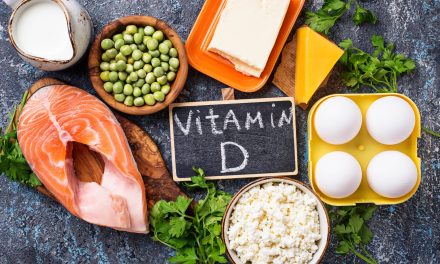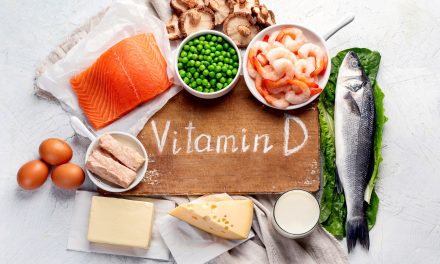Vitamin B12, a crucial nutrient for maintaining optimal health, is pivotal in various bodily functions. Despite its importance, Vitamin B12 deficiency is not uncommon, often due to dietary choices, certain health conditions, or age-related absorption issues.
This deficiency can lead to various health problems, emphasizing the need for adequate intake. High-strength supplements have emerged as a practical solution to meet these needs, especially for those who cannot obtain sufficient amounts from their diet alone.
What is Vitamin B12?
Vitamin B12, or cobalamin, is a water-soluble vitamin essential for various bodily functions. It is unique among vitamins as it contains a metal ion, cobalt. This vitamin plays a critical role in red blood cell formation, nerve function, and the synthesis of DNA. It’s also vital for maintaining healthy brain function and energy levels.
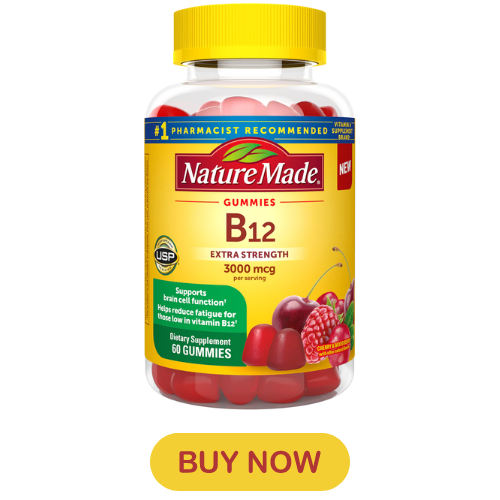
Sources of Vitamin B12
The primary sources of Vitamin B12 are animal-based foods, including meat, poultry, fish, eggs, and dairy products. For those following a vegetarian or vegan diet, obtaining enough B12 can be challenging, as plant-based foods generally lack this nutrient.
This is where supplements come into play. Vitamin B12 supplements are available in various forms, including tablets, capsules, and injections, offering an alternative source for those with dietary restrictions or absorption issues.
Energy Levels and Red Blood Cell Formation
Vitamin B12 is a key player in energy production in the body. It helps convert the food we eat into glucose, which is used as energy. Additionally, B12 is crucial for red blood cell formation. A deficiency can lead to anemia, a condition where the body doesn’t have enough red blood cells to transport oxygen efficiently, leading to fatigue and weakness.
Nerve Function and Brain Health
Vitamin B12 maintains the health of nerve cells and helps form the protective covering of nerves, known as the myelin sheath. This is essential for effective nerve-impulse transmission.
Furthermore, B12 plays a significant role in brain health. It’s involved in neurotransmitter signaling and, along with other B vitamins, helps synthesize and repair DNA. Adequate B12 levels are associated with improved memory and cognitive function and may help reduce the risk of neurodegenerative diseases.
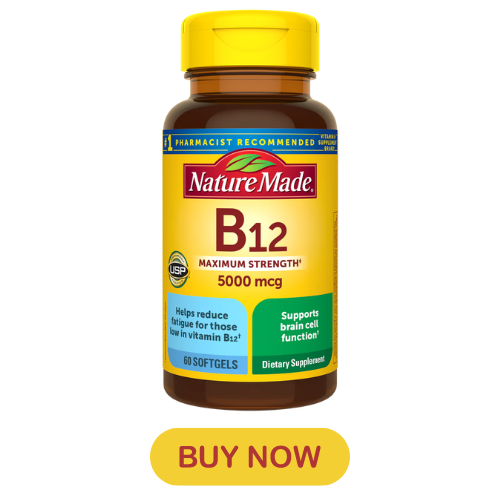
Symptoms and Signs of Vitamin B12 Deficiency
Vitamin B12 deficiency can manifest in various ways, often depending on the severity and duration of the deficiency. Common symptoms include:
- Fatigue and weakness: Reduced red blood cell production leads to anemia.
- Numbness or tingling in the hands and feet: Resulting from nerve damage caused by prolonged deficiency.
- Difficulty in maintaining balance: Related to neurological changes.
- Memory loss and cognitive difficulties: Especially in older adults, due to the role of B12 in brain function.
- Mood changes: Including depression and irritability.
- Glossitis and mouth ulcers: Inflammation of the tongue and mouth sores.
Being aware of these symptoms will allow you to take action early! Oftentimes, people aren’t aware, and the B12 deficiency issues go unchecked. So, please take heed of these specific symptoms, and if you’re already experiencing some of them, then now’s the time to take action!
Risk Groups for Vitamin B12 Deficiency
Certain groups are more susceptible to Vitamin B12 deficiency:
- People over 50: The ability to absorb Vitamin B12 decreases with age.
- Individuals with gastrointestinal disorders: Conditions like Crohn’s disease, celiac disease, or those who have undergone gastrointestinal surgeries, which affect nutrient absorption.
- People taking certain medications: Such as metformin for diabetes, which can interfere with B12 absorption.
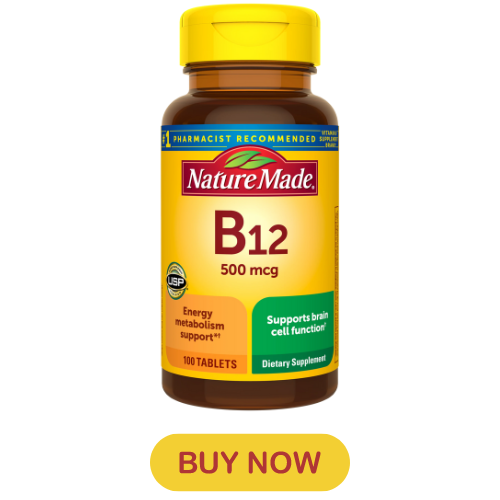
The Case for High-Strength B12 Supplements
High-strength B12 supplements are particularly beneficial for individuals at risk of deficiency. They ensure adequate intake and absorption, even when dietary sources are insufficient or when the body’s ability to absorb the vitamin is compromised.
Comparing Different Forms of B12 Supplements
- Pills/Tablets: Convenient and widely available, these are suitable for most people but may not be ideal for those with absorption issues.
- Sublingual Supplements: These are placed under the tongue and can be more effective for individuals with digestive tract absorption trouble.
- Injections: Often recommended for severe deficiencies, as they bypass the digestive system and directly enter the bloodstream, offering immediate and high absorption.
Each form has its advantages, and the choice often depends on the individual’s specific health needs, convenience, and preference. In the final segment, we will explore how to choose the right B12 supplement and safely incorporate it into your diet.
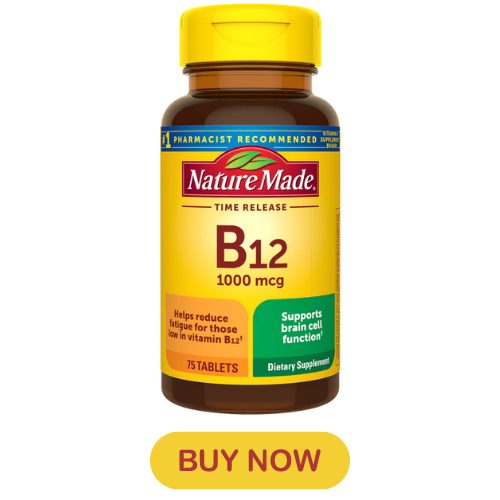
How to Choose the Right B12 Supplement
When selecting a Vitamin B12 supplement, it’s crucial to focus on the form of B12 used. Methylcobalamin and cyanocobalamin are commonly recommended due to their high absorption rates.
The dosage should align with individual health needs, and choosing third-party supplements tested for quality is important. Also, be mindful of any additional ingredients that might not align with your dietary needs or preferences.
To help you understand the differences between various forms of B12 supplements, here’s a factual and informative table:
| Form of B12 Supplement | Best For | Absorption Rate | Dosage Range | Key Considerations |
|---|---|---|---|---|
| Pills/Tablets | General use, especially for those without specific absorption issues | Moderate | 500 mcg – 2000 mcg | Easy to take, widely available; may not be ideal for those with absorption issues |
| Sublingual Supplements | Individuals with absorption issues or who prefer not to swallow pills | High | 500 mcg – 5000 mcg | Placed under the tongue for direct absorption into the bloodstream |
| Injections | Severe deficiencies or absorption disorders | Very High | Administered by healthcare professionals | Directly enters the bloodstream, bypassing the digestive system |
Continuing with the dosage and safety, high-strength B12 supplements are generally safe as the body excretes excess amounts. However, it’s essential to follow the dosage your healthcare provider recommends.
Incorporating B12 Supplements into Your Diet
Integrating B12 supplements into your daily routine can be straightforward. Consistency is key, so taking your supplement at the same time each day can help establish a routine.
While B12 can be taken on an empty stomach, some people may prefer to take it with food to minimize any potential stomach upset. B12 can be taken alongside most other vitamins and supplements, but spacing out different supplements may be advisable.
Be aware of potential interactions with other medications, such as proton pump inhibitors or certain diabetes medications. Always consult with a healthcare provider before starting any new supplement, especially if you have underlying health conditions or are taking other medications.
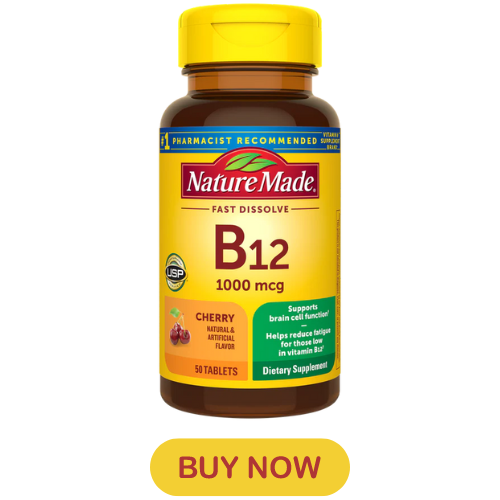
Embrace the Benefits of Vitamin B12 Supplements
Vitamin B12 is a vital nutrient that plays a significant role in many bodily functions, from energy production to nerve function and brain health. If you’d like to learn more about vitamin D, click here to discover more health benefits.
Understanding the signs of deficiency, the benefits of high-strength supplements, and how to choose and incorporate the right B12 supplement into your diet can significantly impact your overall well-being. Remember to consult with a healthcare provider to tailor your B12 intake to your specific health needs.


